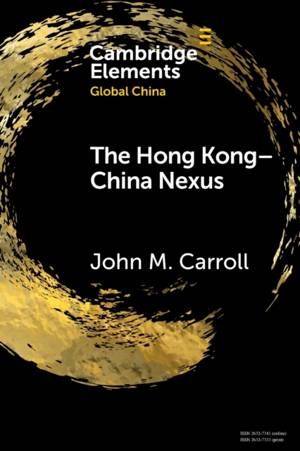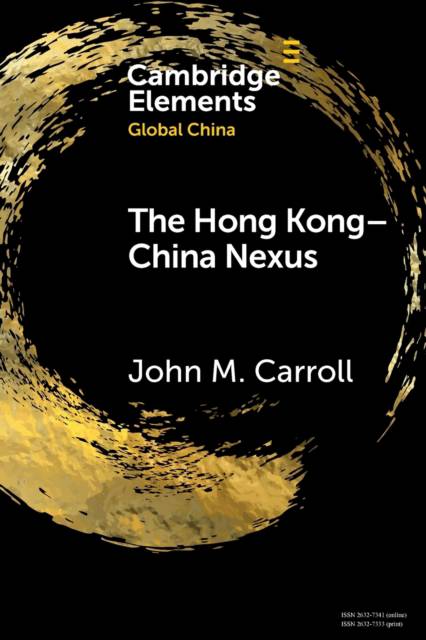
Bedankt voor het vertrouwen het afgelopen jaar! Om jou te bedanken bieden we GRATIS verzending (in België) aan op alles gedurende de hele maand januari.
- Afhalen na 1 uur in een winkel met voorraad
- In januari gratis thuislevering in België
- Ruim aanbod met 7 miljoen producten
Bedankt voor het vertrouwen het afgelopen jaar! Om jou te bedanken bieden we GRATIS verzending (in België) aan op alles gedurende de hele maand januari.
- Afhalen na 1 uur in een winkel met voorraad
- In januari gratis thuislevering in België
- Ruim aanbod met 7 miljoen producten
Zoeken
Omschrijving
The Occupy Central/Umbrella Movement of 2014 and the anti-extradition protests of 2019 revealed how much Hong Kong's relationship with mainland China has deteriorated since the former British colony returned to Chinese sovereignty in July 1997. With mutual distrust and suspicion at an all-time high, many Hong Kong people have become increasingly hostile toward the Chinese government and the mainland in general, identifying themselves as Hongkongers rather than as Chinese. Yet, as John Carroll shows, for more than 150 years, colonial Hong Kong and China not only coexisted with but benefited each other, even during the anti-imperialist campaigns of the Republican and Communist eras. The porous boundary between Hong Kong and China enabled the two to use each other economically, politically, socially, and culturally. The Hong Kong-China nexus, although firmly embedded in global dynamics of colonialism, Cold War politics, and capitalist expansion, defies many common assumptions about nationalism, colonialism, and decolonization.
Specificaties
Betrokkenen
- Auteur(s):
- Uitgeverij:
Inhoud
- Aantal bladzijden:
- 96
- Taal:
- Engels
- Reeks:
Eigenschappen
- Productcode (EAN):
- 9781108789776
- Verschijningsdatum:
- 5/05/2022
- Uitvoering:
- Paperback
- Formaat:
- Trade paperback (VS)
- Afmetingen:
- 152 mm x 229 mm
- Gewicht:
- 140 g

Alleen bij Standaard Boekhandel
+ 66 punten op je klantenkaart van Standaard Boekhandel
Beoordelingen
We publiceren alleen reviews die voldoen aan de voorwaarden voor reviews. Bekijk onze voorwaarden voor reviews.









